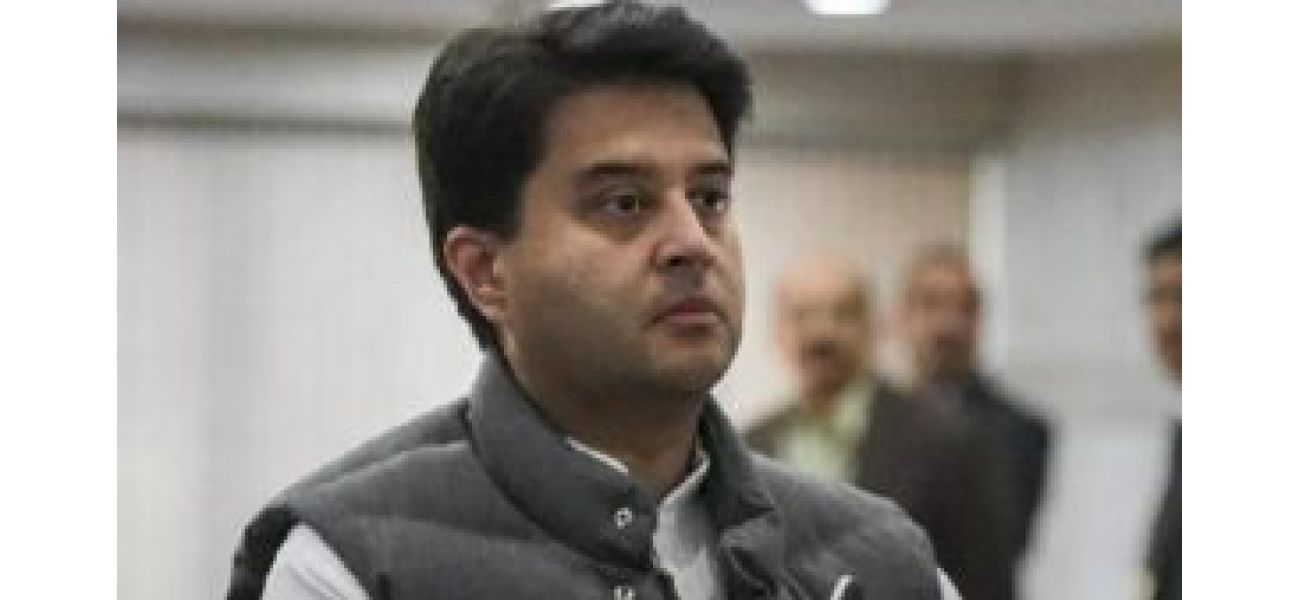Satellite communication spectrum will be assigned by government but fees may apply, according to Scindia.
Telecom Minister Scindia rejected the demand to auction satcom spectrum but said it will still come at a cost for satellite-based communication services. Bharti Airtel's Sunil Mittal also made a similar request.
October 15th 2024.

New Delhi: On Tuesday, Telecom Minister Jyotiraditya Scindia addressed the demands of service providers regarding the auction of satcom spectrum. He firmly stated that while radiowaves for satellite-based communication services will be assigned administratively, they will still come at a cost.
Earlier in the day, Sunil Bharti Mittal, founder and chairman of Bharti Airtel, joined rival company Reliance Jio in demanding the allocation of spectrum for satcom services in the same manner as it is allocated to telecom players.
During the India Mobile Congress, Scindia addressed the issue and stated that the Telecom Act of 2023 has clearly stated that satcom spectrum will be allocated administratively. However, this does not mean that it will come without a cost. The cost and formula for this will be decided by Trai, the regulatory authority for telecom.
In September, Trai initiated a consultation process to determine the methodology and price for assigning spectrum to satellite companies. This would allow them to provide calling, messaging, broadband, and other services in India.
Last week, Reliance Jio wrote to Scindia, expressing concerns about Trai's failure to include questions on a level-playing field between terrestrial and satellite players in their consultation paper. They referred to the Supreme Court's judgement in the 2G case and warned of potential legal battles.
During the India Mobile Congress, Mittal also addressed the issue and stated that satellite companies interested in providing communication services in urban areas should obtain telecom licenses and buy spectrum, just like telecom companies. He also mentioned that satellite operators who want to provide services to retail customers would need to go through the regular licensing process and follow all obligations and regulations.
Airtel, in a statement, clarified that they have always been committed to using all technologies, including satcom, to provide high-speed broadband connectivity in every corner of the country. They have tied up with Eutelsat OneWeb, a LEO constellation, to provide satcom services in India and Africa. They also stated that both mobile and satcom operators can work together to serve those who are still struggling to access internet connectivity.
Scindia also addressed the issue of satellite spectrum allocation and stated that it is done administratively in most countries around the world. He also mentioned that if India decides to auction the spectrum, it would go against the global norm and would raise other issues, such as pricing of shared spectrum. He emphasized that India is following a model that is consistent with other countries.
Earlier in the day, Sunil Bharti Mittal, founder and chairman of Bharti Airtel, joined rival company Reliance Jio in demanding the allocation of spectrum for satcom services in the same manner as it is allocated to telecom players.
During the India Mobile Congress, Scindia addressed the issue and stated that the Telecom Act of 2023 has clearly stated that satcom spectrum will be allocated administratively. However, this does not mean that it will come without a cost. The cost and formula for this will be decided by Trai, the regulatory authority for telecom.
In September, Trai initiated a consultation process to determine the methodology and price for assigning spectrum to satellite companies. This would allow them to provide calling, messaging, broadband, and other services in India.
Last week, Reliance Jio wrote to Scindia, expressing concerns about Trai's failure to include questions on a level-playing field between terrestrial and satellite players in their consultation paper. They referred to the Supreme Court's judgement in the 2G case and warned of potential legal battles.
During the India Mobile Congress, Mittal also addressed the issue and stated that satellite companies interested in providing communication services in urban areas should obtain telecom licenses and buy spectrum, just like telecom companies. He also mentioned that satellite operators who want to provide services to retail customers would need to go through the regular licensing process and follow all obligations and regulations.
Airtel, in a statement, clarified that they have always been committed to using all technologies, including satcom, to provide high-speed broadband connectivity in every corner of the country. They have tied up with Eutelsat OneWeb, a LEO constellation, to provide satcom services in India and Africa. They also stated that both mobile and satcom operators can work together to serve those who are still struggling to access internet connectivity.
Scindia also addressed the issue of satellite spectrum allocation and stated that it is done administratively in most countries around the world. He also mentioned that if India decides to auction the spectrum, it would go against the global norm and would raise other issues, such as pricing of shared spectrum. He emphasized that India is following a model that is consistent with other countries.
[This article has been trending online recently and has been generated with AI. Your feed is customized.]
[Generative AI is experimental.]
0
0
Submit Comment





